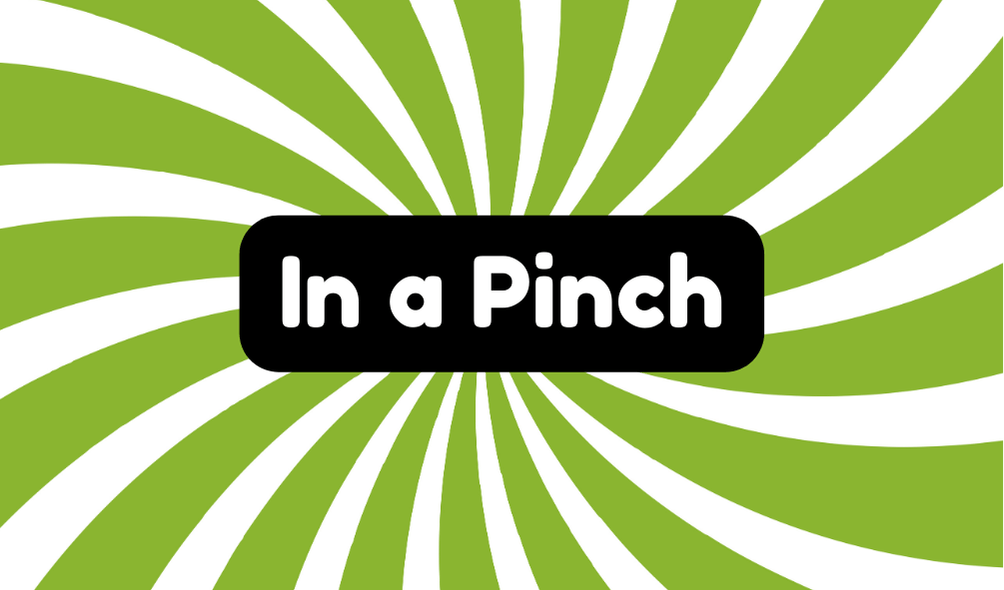The phrase "in a pinch" means you're in a tough situation where you need quick assistance or a clever fix. Originating from the late 1400s, it originally appeared as "at a pinch," reflecting the pressure of being in a tight spot. You might say a friend helped you out in a pinch when your car broke down, or you adapted a recipe by using oats instead of flour. This phrase continues to be relevant in modern life, symbolizing quick thinking and resourcefulness. If you're curious about its usage or related expressions, there's more to discover.
Synonyms
When you're in a pinch, you might find yourself looking for alternatives to express your situation. It's vital to have a grasp on synonyms, especially when you're faced with a tight situation and need emergency solutions. Here are a few innovative terms you could use:
- In a jam
- In a bind
- In a squeeze
These synonyms help convey the urgency and frustration of your circumstances. However, it's important to discern their nuanced meanings; each term underscores a different shade of your predicament. Don't settle for vague language when expressing how dire things really are. Communicating effectively not only clarifies your needs but can also lead to more effective solutions. Stay sharp, and remember, choosing the right words can shape your outcomes.
Example of Sentences
In everyday life, you may encounter situations that require quick thinking and clever alternatives; this is where understanding how to use the phrase "in a pinch" becomes invaluable. Consider these example situations:
- You forget your lunch; a coworker shares theirs in a pinch.
- Your car breaks down; a friend offers a ride to an essential meeting.
- You run out of flour; substituting with oats works in a pinch for baking.
These everyday challenges often catch you off guard, but knowing how to adapt can save the day. While it's great to have resources on hand, relying solely on them isn't practical. Sometimes, you'll need ingenuity and the ability to make do with what you've got, whether it's asking for help or improvising.
Origin
The origin of the phrase "in a pinch" dates back to the late 1400s. Initially expressed as "at a pinch," this idiomatic expression captured a sense of urgency and necessity. It reflects how language evolves; what was once a common phrase becomes a staple in our vocabulary. Historical usage shows that "pinch" symbolizes strained circumstances, emphasizing how people often find themselves in difficult positions. The phrase first appeared in print in 1489, through William Caxton's translation, creating a bridge between old and modern expressions of distress. Today, we might say "in a jam," but the essence remains the same: the need to adapt quickly when preferred options vanish, reminding us of the importance of creativity and resourcefulness in times of trouble.
Collocations
Collocations of the phrase "in a pinch" reveal how it seamlessly integrates into everyday language. You might not notice it often, but recognizing common collocations can enhance your communication skills. Here are a few collocations examples:
- Use it in a pinch: Signifies that you can rely on something when needed urgently.
- Help someone in a pinch: Indicates offering assistance during tough times.
- Do a task in a pinch: Refers to completing an activity under pressure.
These common collocations show "in a pinch" in action, yet it's crucial to understand when and how to use them. Misplaced phrases can confuse your expression and muddle your message, so be mindful of your choices.
How to Use in Everyday Language
Everyday conversations can greatly benefit from incorporating the phrase "in a pinch." Whether you're discussing last-minute plans or facing an unexpected situation, this expression captures the urgency of needing a viable alternative. Using "in a pinch" effectively communicates urgency in everyday situations. For example, if a friend can't make it to dinner last minute, you might suggest, "We can eat at home, in a pinch." This phrase helps address common challenges without making them seem overly dramatic. It's essential to remember, however, that while this expression can convey quick solutions, relying on it too often might belittle the seriousness of certain challenges. So, mix it into your vocabulary thoughtfully, and watch how it can sharpen your everyday dialogue!
Why Is It Still Relevant Today?
Situations can arise unexpectedly, and knowing how to navigate them is essential. "In a pinch" remains relevant today because it embodies the quick-thinking needed in modern life. With the rapid pace of change, you often find yourself in tight spots, making cultural significance even stronger. This phrase captures the essence of resilience and resourcefulness, qualities many admire.
| Current Usage | Cultural Significance | Real-World Example |
|---|---|---|
| Problem-solving | Value of flexibility | Adapting meal plans |
| Crisis management | Importance of support | Calling a friend |
| Innovation | Response to challenges | Tech solutions |
In a world of uncertainties, understanding this idiom fosters better communication in daily situations.







